Bottle madness
Being back in Sweden after 20 years living abroad, I notice some things that have improved and others that have degenerated or decayed. One of the disappointments flew in my face when I biked off to buy beer.
I realized that almost all beer in my local supermarket is packaged in either aluminum cans or in single-use glass bottles. Only one out of 25 beers was available in a re-fillable deposit glass bottle. This is a giant leap in the wrong direction.
What a decadence to destroy every bottle after having had a drink! It feels like throwing my plate on the ground instead of washing up. Or re-melting my cutlery and forge new knives and forks instead of rinsing them.
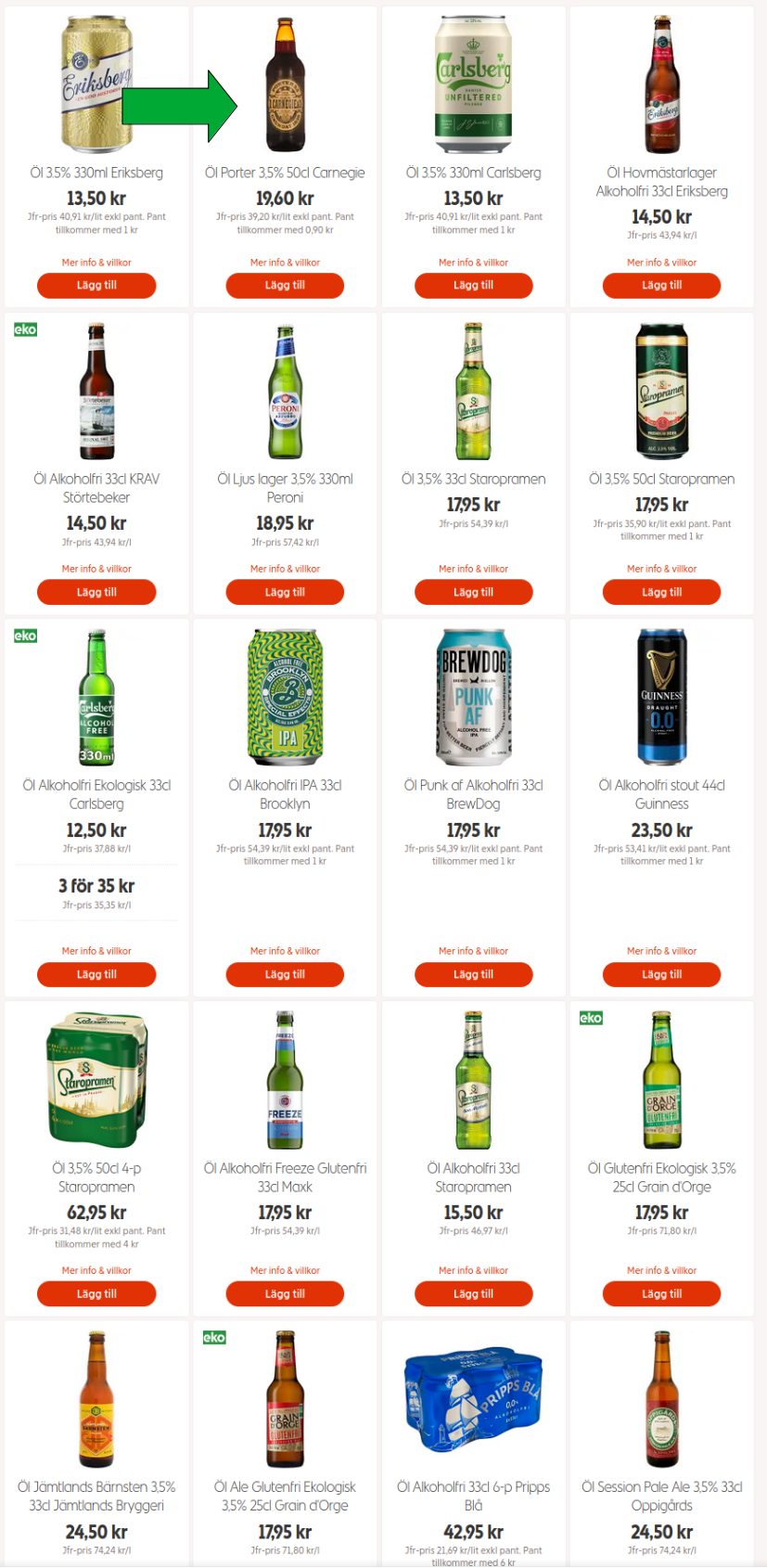
Only one of these beers is packaged in a refill bottle.
When I was a student in Sweden, back in the last century, I consumed commensurate amounts of brewed barley. In those days the beverage was packaged in standardized 0.33 liter glass bottles, that were returned to be washed and refilled. I now cherish my quaint memories of a more resource-wise age.
I travelled through Germany a month back, and there almost all beer was sold in refill bottles. What a relief to be back in a civilized country. You can imagine my joy as I walked up and down the ailes of assorted lagers and weissbier, all in multi-use containers. Each bottle has a hefty deposit that incites even the laziest beer drinker to bring the empty bottles back into business.
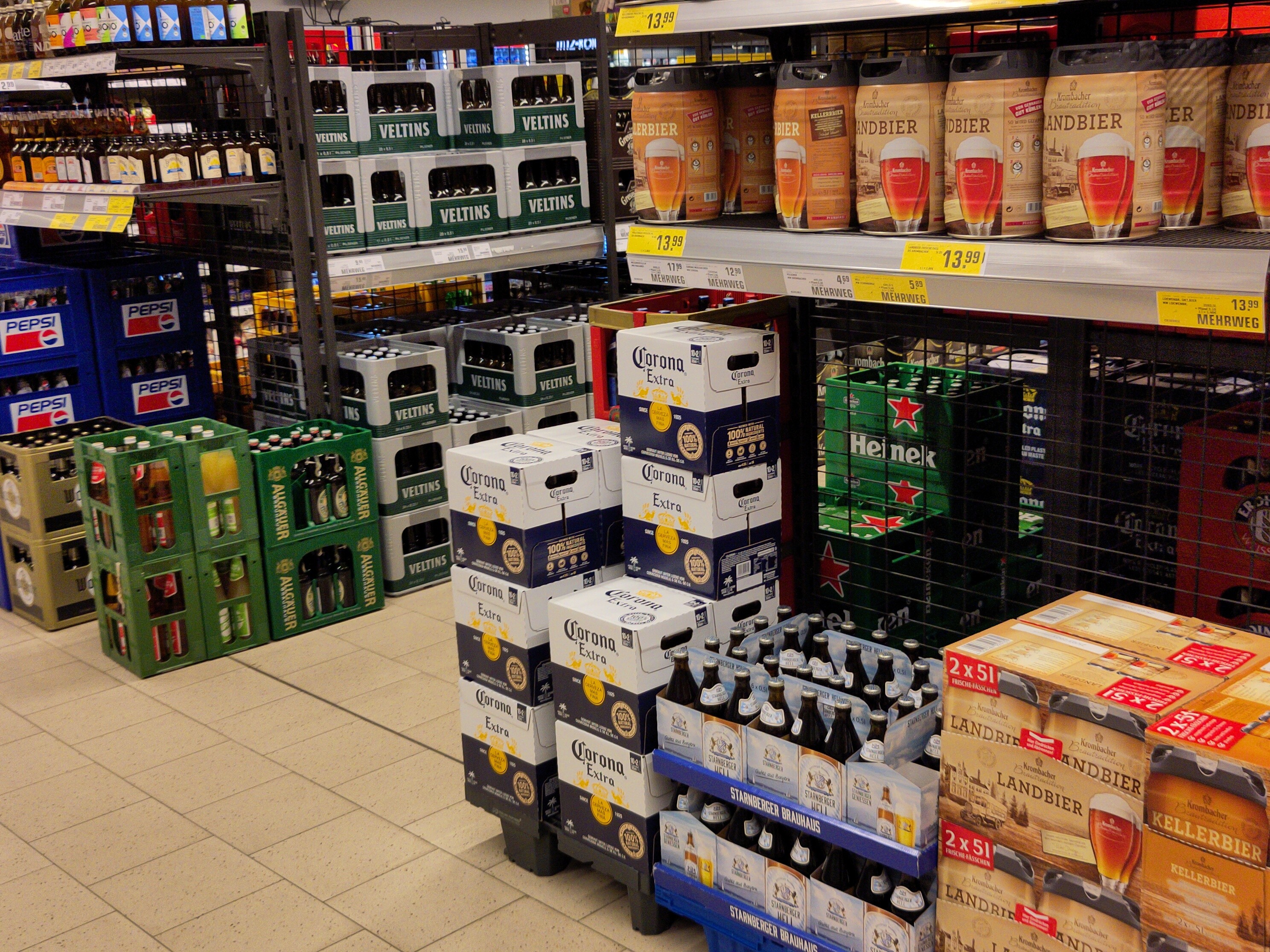
The top shelf kegs are not refillable (yet) but all the glass bottles and crates are part of a national deposit scheme. When shopping for kellerbier, you also learn the useful German word mehrweg, which denotes something that can be used many times. Reusable.
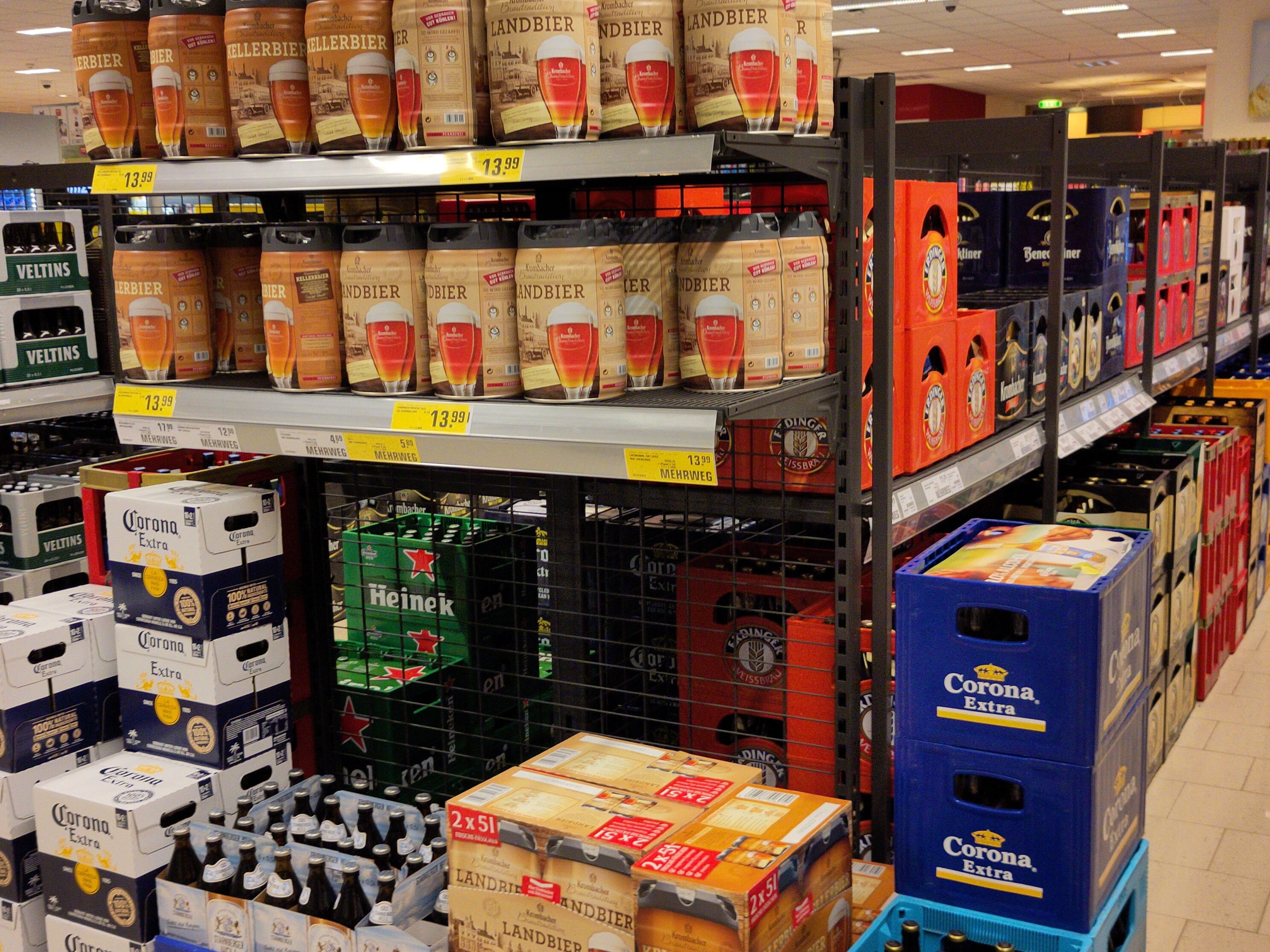
Even juice and sparkling water is available in refill bottles. What a wonderful place!
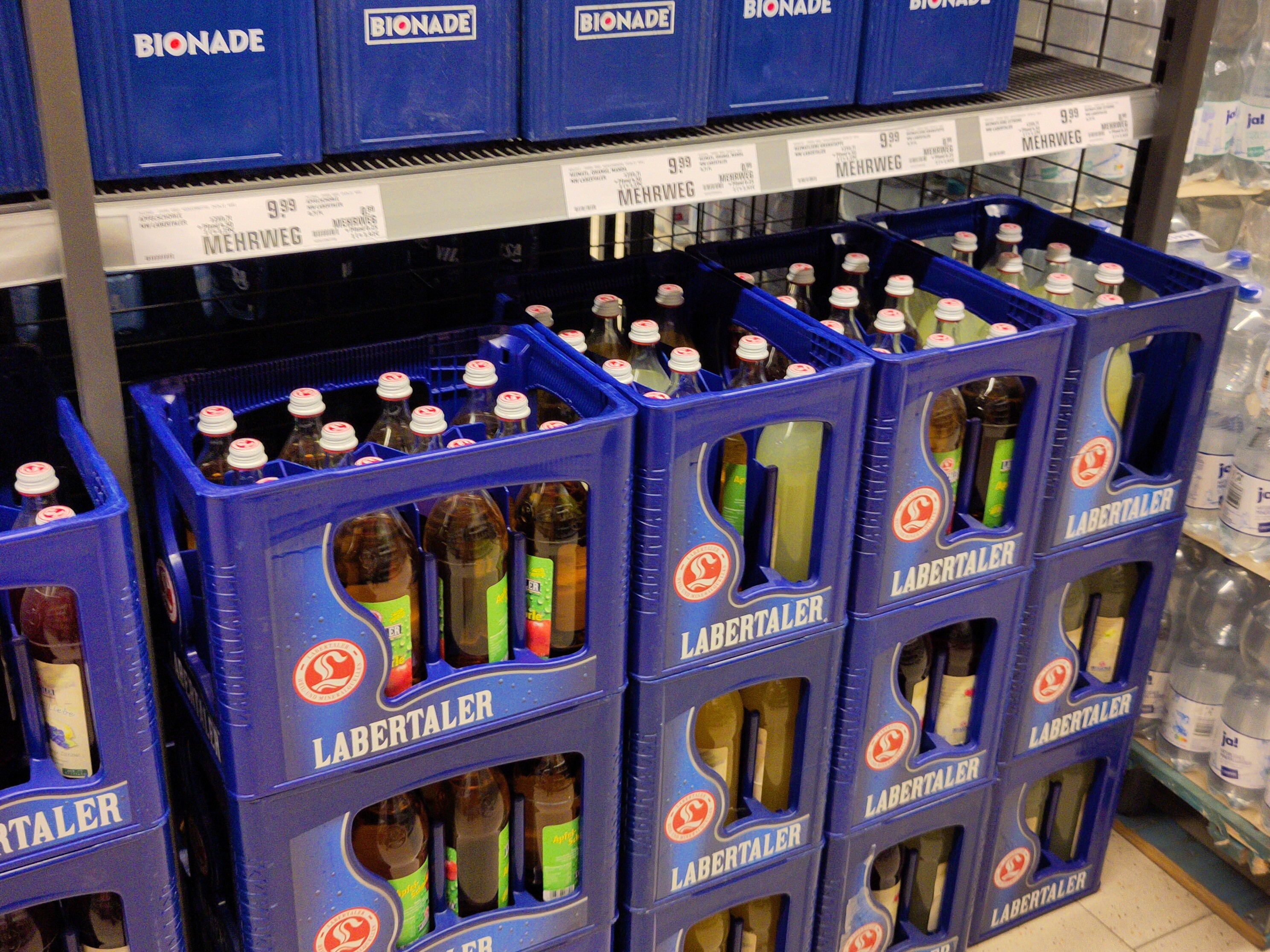
Why bother?
Why do I think that refill glass bottles are better, you might ask?
In my opinion the main advantage is that we save energy and resources. Every time I crush a bottle in a recycling bin, I feel like I am losing 1 kWh. That is one man-day's equivalent energy. It is a waste on an epic scale. (I don't how exactly how much energy it takes to melt the glass and make a new bottle, so if you have data on this, please let me know!)
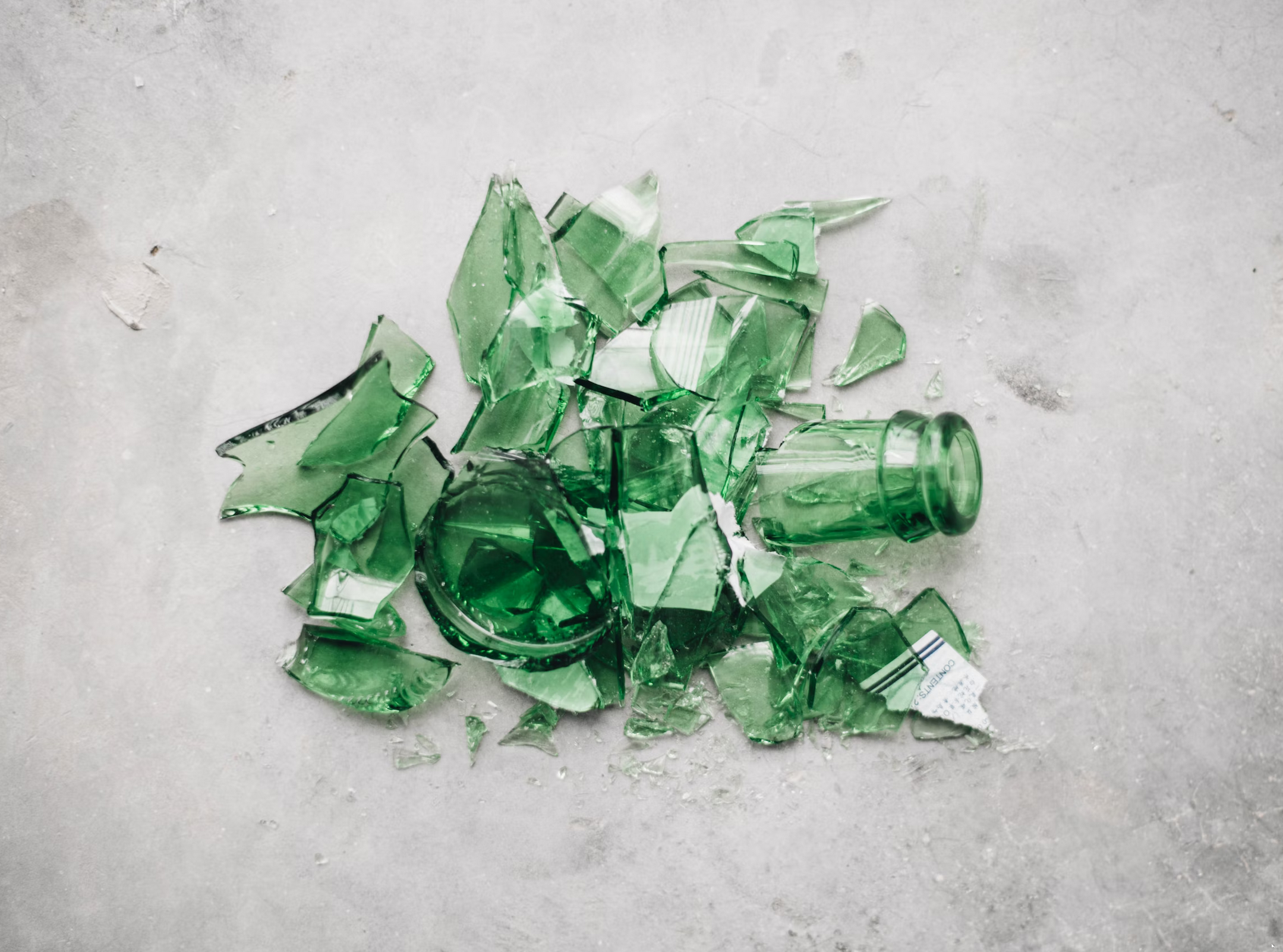
I feel just as broken every time I smash a perfectly usable bottle. photo by ChutterSnap/Unsplash
It is much more energy efficient to wash a bottle before refilling, instead of making a new bottle from the cullet (jargon term for crushed glass). Some claim that that 93% less energy is used for a system where bottles are refilled 25x on average, compared with single-use glassware.
Typical single-use bottle (left) and a slightly thicker refillable (right). The right one also comes from a regional brewery 30 km from here.
Why are we wasting all this energy and all those resources?
There are numerous players in the value stream who prefer single-use bottles. Bottle makers have more business. Supermarkets don't have to handle crates of stinking bottles. Beer makers (a.k.a. "brand owners") can design more special bottles to make their particular bottle seem more attractive.
I guess that in a time of energy abundance, the percieved "value" of using virgin bottles every time drove decision making in the wrong direction.
(Cut out the cans. I don't want to talk about aluminium cans right now. However, I have recently visited an aluminium smelting factory, and I just want to share that the situation is not all rainbows and unicorn farts.)
What do I want?
I want a society living and thriving within planetary boundaries. Therefore I want to live with a minimal ecological/energy footprint. And I like beer.
In my dreams, I would pick up a crate of locally brewed beer at the Sofiero brewery, 3 kilometers from my house, and bring the crate back when finished. I could easily do that with my bicycle with a trailer. I really would like to do the same at an organic dairy farm, like we did when we lived in The Netherlands. Possibly I would do a pit stop at an apple-wine maker's workshop too.
Call for action!
I think we need a two-pronged approach:
-
Contact your favourite beverage producer and tell them to re-introduce refill bottles. Tell them how much you love their product, and how much it pains you to destroy the bottle.
-
Pressure your politicians to improve legislation to ban single-use glass and to force supermarkets to accept refill bottles for deposit.
I am convinced that we need both commercial and a legal pressures to drive change. What do you think? Or will the refill bottle come back on it's own when energy costs rise?
Some links
Here is some good info on the US situation, and how deposit schemes works well in certain places, thanks to a combination of brave politicians and wise business leaders:
Reloop analysis of refill/return and deposit systems for beverages. Great graphs
I dream of one beautiful summer day, when we can toast, each of us holding a refilled beer bottle. Then, let's celebrate and start scheming for a revolution to replace single-use glass jars for jam and vegetables. Of course they also deserve a refill/deposit scheme!